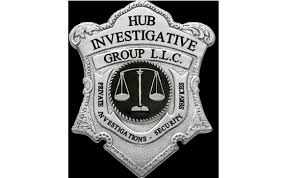Raising the Bar: What Makes a Security Company Stand Out
In an industry crowded with providers, what distinguishes one security company from another isn’t just uniforms or badges—it’s licenses, training, experience, and reputation. Companies that demand and maintain higher licenses not only meet but often exceed regulatory requirements, giving clients stronger protection, reliability, and peace of mind.
One such company is Hub Security & Investigative Group (also known as Hub Investigative Group) in Massachusetts/New England. They illustrate many of these higher standards in action.
Who is Hub Security & Investigative Group?
Some key features:
-
Based in Boston area / New England.
-
Founded in 2004. over the years they’ve grown, offering security management, investigations, executive protection.
-
Senior management includes former law enforcement and loss prevention professionals.
-
They are licensed as a private detective firm in Massachusetts, not just a regular guard company.
-
They do not subcontract their security guard work; they maintain in-house staff, ensuring more control over hiring, training, supervision.
What “Higher License” Means in Practice
When we say a company has “higher license” (or higher licensing standards), we mean they go beyond bare minimums in some or all of:
-
Regulation / licensing as private detectives or investigative firms
-
Advanced training for security / investigations / firearms / use of force / crisis management
-
Hiring staff with law enforcement / military background
-
More rigorous background checks, including criminal history, CORI / fingerprinting, etc.
-
Insurance, liability, and compliance documentation
-
Ongoing oversight, supervision, audits, and often not cutting corners via subcontractors
Hub offers many of these. For example, the fact that they are licensed as a private detective firm implies a stricter regulatory regime than plain security guard companies.
Why This Matters: Benefits of Higher Licensing & Standards
-
Trust & Credibility
Clients (commercial properties, condos, events, VIP protection) want assurance—they feel safer hiring a firm with credible licensure and well-known leaders with law enforcement background. -
Accountability & Compliance
Higher-licensed firms must meet more regulatory requirements. That reduces risk in terms of liability, legal exposure, and potential for misconduct. -
Better Training = Better Outcomes
Guards from higher-standard firms tend to have more training: de-escalation, use of force, emergency response, firearms (if applicable), investigation skills. Those skills matter in preventing incidents and managing crises. -
Quality of Personnel
Having leaders who are former law enforcement or loss prevention can bring experience, discipline, and more realistic threat assessment. -
Competitive Advantage
In industries or contracts where regulations are strict (e.g. events, high-security buildings, government contracts), having the proper license is often a requirement. Also clients may be willing to pay more for higher quality and lower risk. -
Reduced Risk for Clients
Insurance is often better, legal risk is lower; clients have a partner who is more likely to deliver consistent performance.
Challenges & Trade-Offs
It’s not trivial being “higher standard.” Some challenges:
-
Cost of compliance: Insurance, licensing, training, oversight, wages—higher standards cost more.
-
Operational burden: Managing licensing renewals, audits, continuing education; supervising staff more closely.
-
Talent recruitment: To maintain high standards, you need staff with the right backgrounds; those individuals may be harder to hire, cost more.
-
Regulation complexity: Different states (or municipalities) have different licensing regimes; companies operating in multiple jurisdictions must be compliant everywhere.
Lessons from Hub: What Other Companies Can Learn / Emulate
From studying Hub, here are concrete steps security companies can take to raise their licensing / standard game:
-
Obtain a higher or more encompassing license
Like being a Private Detective Firm / Investigative Agency, not just a guard company. This requires meeting training, experience, regulatory requirements. Hub does this. -
Staff with Law Enforcement / Experts
Use leadership with career backgrounds in LE or loss prevention. Helps both in skill and reputation. Hub uses former law enforcement in management. -
Maintain in-house workforce
Avoid outsourcing or subcontracting guard functions when possible to maintain quality, oversight. Hub claims they do not subcontract their guard work. -
Comprehensive Training Programs
Go beyond minimal state training. Include crisis / de-escalation / incident response / firearms (if applicable) / customer service. -
Rigorous Hiring / Screening
Use background checks, CORI (in MA), fingerprinting; verify identities; check past job performance; vet criminal history. Hub uses CORI and age standard etc. -
Strong Insurance & Liability Coverage
Armed guards, investigative functions require higher liability limits; ensure insurance is appropriate, and legal compliance. Hub is fully licensed and insured. -
Transparent Policies & Client Contracts
Clear expectations for what the client gets: patrol times, response capability, supervision, uniformed vs plain clothes, armed vs unarmed, etc. -
Local Knowledge & Focus
Understanding regional laws, crime patterns, municipal regulations. Hub’s strength is their Boston / New England focus.
What Clients Should Look For When Hiring a “Higher-License” Security Firm
If you are a business, property owner, or event organizer, here are some red flags and checklist items to consider:
-
What licenses does the firm have? Private detective / investigative licenses are a plus.
-
Is their license valid in your jurisdiction? States, counties, cities vary.
-
Are the guards licensed / certified? Armed guards? Firearms certification if applicable.
-
What training do they mandate and provide ongoing? First aid, CPR, de-escalation, etc.
-
Are senior staff / supervisors former law enforcement or experienced professionals?
-
Do they handle work in-house or via subcontractors? More in-house usually implies more control.
-
What kind of insurance do they carry? Liability, workers’ comp, etc.
-
Past track record & client references. Testimonials, case studies.
-
What are their response times, technology, and resources? E.g. mobile patrols, surveillance capability, communication systems.
Concluding Thoughts
In sum, “higher licensed” security firms represent more than just compliance—they represent quality, accountability, and professionalism. Hub Security & Investigative Group is one such example: by combining investigative licensing, law enforcement experience, strong in-house staff, and rigorous oversight, they are able to offer premium service that many clients find worth the investment.
For the security industry overall, this trend toward higher licensing, better training, and more transparency is likely to continue as clients demand greater value and regulators push for safer, more accountable operations.
If you’d like, I can put together a version of this post with side-by-side comparisons (Hub vs “typical guard companies”) or a checklist infographic for clients to evaluate firms.
LINKS:
https://www.yelp.com/biz/hub-security-and-investigative-group-boston
